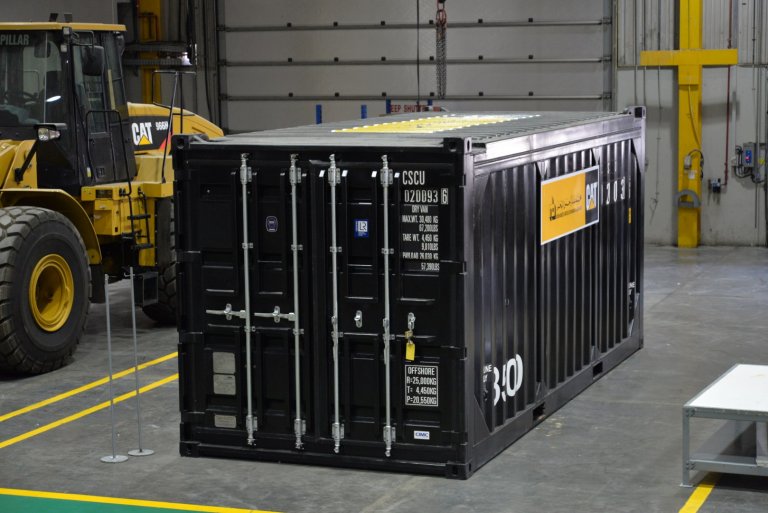In the dynamic and challenging environment of offshore operations, efficiency, reliability, and safety are paramount. One of the key innovations that have revolutionized the industry is the use of offshore workshop containers. These versatile and robust units provide a mobile, self-contained workspace that meets the demanding requirements of offshore maintenance and repair activities. This blog delves into the multifaceted benefits of offshore workshop containers, their applications, and why they are indispensable in modern offshore operations.
Understanding Offshore Workshop Containers
Offshore workshop containers are specially designed modular units built to withstand the harsh conditions of offshore environments. Constructed from high-strength steel and equipped with state-of-the-art facilities, these containers serve as portable workshops that can be easily transported and deployed on offshore platforms, ships, and other marine structures.
Key Features and Specifications
1. Durability and Safety
Offshore workshop containers are built to endure extreme weather conditions, saltwater corrosion, and the physical stresses of offshore operations. They comply with stringent international standards such as DNV 2.7-1/2.7-2, EN 12079, and CSC, ensuring they meet safety and quality requirements. Additionally, these containers are often equipped with fire-resistant materials, explosion-proof lighting, and ventilation systems to enhance safety.
2. Customizable Interiors
The interior of an offshore workshop container can be customized to fit the specific needs of the operation. They can be outfitted with workbenches, tool storage, shelving, electrical systems, HVAC systems, and even advanced equipment like welding machines and hydraulic presses. This customization allows for a high degree of functionality and efficiency.
3. Mobility and Flexibility
One of the significant advantages of these containers is their mobility. They can be easily transported by ship, crane, or helicopter to any offshore location. Once on-site, they can be rapidly deployed and made operational, significantly reducing downtime.
4. Integration with Existing Infrastructure
Offshore workshop containers can be seamlessly integrated into existing offshore structures. They can be stacked or connected to create larger workshop areas, providing scalable solutions that adapt to the needs of the operation.
Applications of Offshore Workshop Containers
1. Maintenance and Repairs
Regular maintenance and prompt repairs are crucial for the longevity and safety of offshore equipment. Offshore workshop containers provide a controlled environment where technicians can perform maintenance tasks and repairs efficiently, regardless of the external conditions.
2. Fabrication and Welding
These containers can be equipped with welding stations, cutting tools, and other fabrication equipment, enabling the on-site production and modification of parts and structures. This capability is particularly valuable for remote offshore locations where access to resources and supplies is limited.
3. Tool Storage and Management
Keeping tools and equipment organized and secure is essential in the challenging offshore environment. Workshop containers offer a secure and weatherproof storage solution, ensuring that tools are protected and readily accessible when needed.
4. Training and Testing Facilities
Offshore workshop containers can be adapted to serve as training centres or testing labs. They provide a controlled environment where new techniques can be taught, and equipment can be tested and calibrated before deployment.
Benefits of Offshore Workshop Containers
1. Cost Efficiency
By bringing the workshop to the site, offshore workshop containers eliminate the need for transporting equipment back and forth from the shore. This reduces transportation costs and minimizes downtime, leading to significant cost savings.
2. Enhanced Safety
The controlled environment of a workshop container enhances safety by providing a dedicated space for potentially hazardous activities like welding and cutting. The robust construction and safety features of the containers further protect personnel and equipment.
3. Improved Productivity
Having a fully equipped workshop on-site means that repairs and maintenance can be carried out promptly, reducing the time equipment is out of operation. This immediate response capability enhances overall productivity and operational efficiency.
4. Environmental Protection
Offshore workshop containers are designed to minimize their environmental impact. They often include spill containment systems and are constructed from materials that can withstand the corrosive marine environment, reducing the risk of environmental contamination.
Case Studies and Real-world Applications
Case Study 1: North Sea Oil Platform
A leading oil company operating in the North Sea faced frequent delays due to the time required to transport tools and equipment from shore to the offshore platform. By deploying customized offshore workshop containers equipped with advanced machining tools and welding equipment, they were able to perform on-site repairs and modifications. This not only reduced downtime but also significantly cut costs associated with transportation and logistics.
Case Study 2: Offshore Wind Farm Maintenance
An offshore wind farm operator used workshop containers to streamline maintenance operations. The containers were fitted with specialized tools for servicing wind turbine components and provided a secure storage area for spare parts. This setup enhanced the efficiency of maintenance crews and ensured the wind turbines remained operational, maximizing energy production and profitability.
Future Trends and Innovations
The future of offshore workshop containers looks promising with ongoing innovations. Advances in materials science are leading to the development of even more durable and lightweight containers. Integration of smart technologies, such as IoT sensors and remote monitoring systems, is enhancing the functionality and efficiency of these units. Additionally, as the renewable energy sector expands, the demand for mobile, versatile workshop solutions is expected to grow, further driving innovation in this field.
Conclusion
Offshore workshop containers are a game-changer in the offshore industry. Their versatility, durability, and ability to enhance operational efficiency make them an indispensable tool for modern offshore operations. As technology advances and the offshore sector continues to evolve, these containers will undoubtedly play a crucial role in shaping the future of offshore maintenance and repair activities. Investing in offshore workshop containers is not just a step towards improving operational efficiency but also a commitment to safety, cost-effectiveness, and environmental responsibility.


